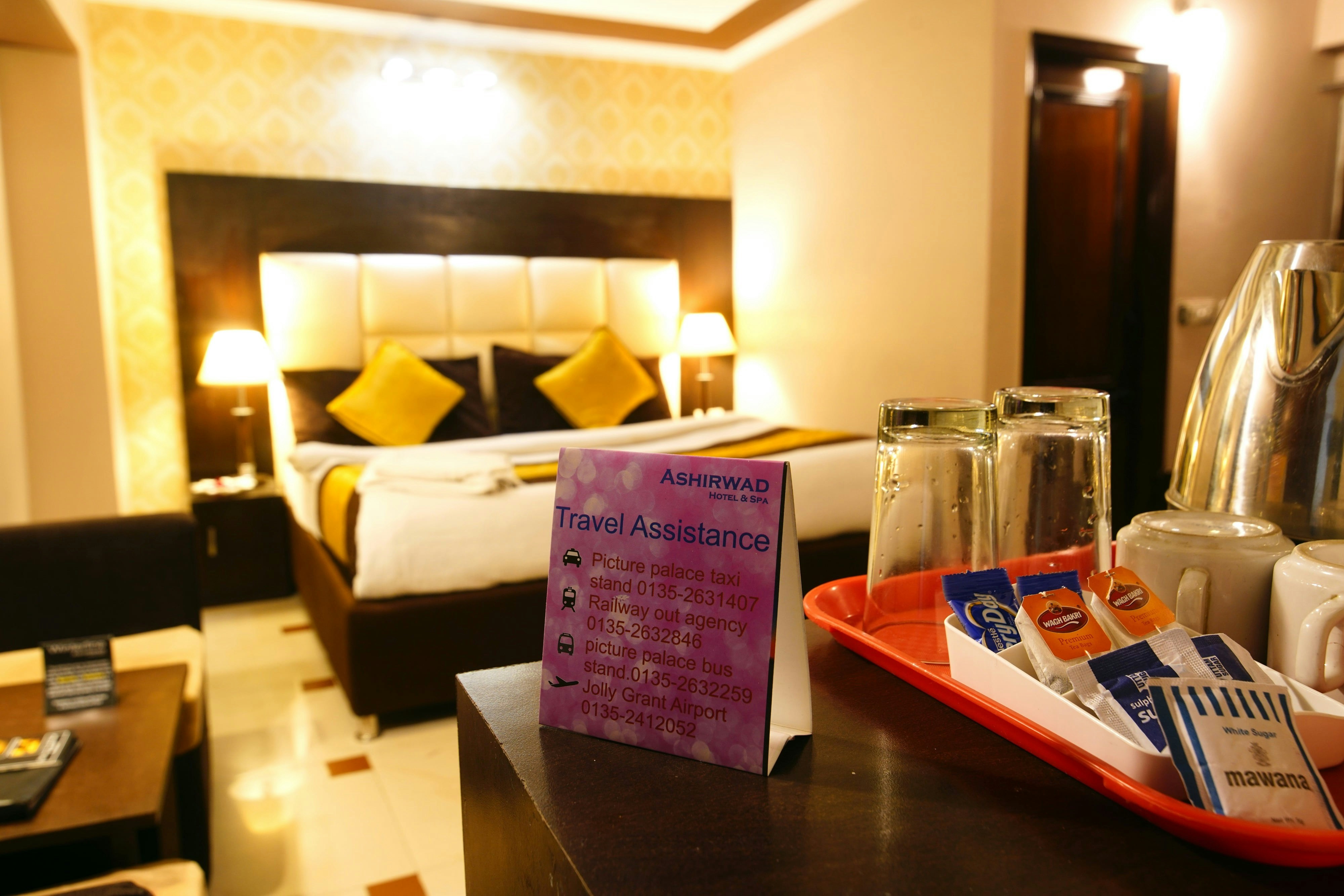Introduction to Hotel Booking Secrets
Hotel bookings have always held an air of mystery for travelers. For many, the process can be overwhelming, laden with questions about pricing, availability, and hidden fees that can unexpectedly inflate costs. In this ever-evolving landscape of the travel industry, gaining insider knowledge can prove invaluable. Our previous exposé highlighted some shocking secrets hotels typically keep under wraps, revealing insights that could alter the way one approaches bookings altogether.
Understanding the intricacies of hotel reservations allows travelers to navigate the myriad of options more effectively. From dynamic pricing to reward programs, these components often influence the final rate and the amenities attached to the reservation. By exploring the underlying truths behind hotel bookings, individuals can empower themselves to make informed decisions that align with their preferences and budget.
More than just securing a room, effective hotel booking strategies can lead to significant savings and a more enriching travel experience. By leveraging the techniques discussed in this guide, travelers can not only uncover competitive rates but also enhance their overall satisfaction during the stay. Knowing when to book, how to negotiate, and recognizing the value of loyalty programs can turn what might be considered a mundane task into an avenue for enhanced comfort and convenience.
In a world where information is readily available, being an informed traveler is paramount. As we delve deeper into the hidden truths behind hotel bookings, readers are encouraged to consider this knowledge as a toolkit that will aid in crafting their journey. The insights derived from this exploration can ultimately transform the way one views hotel reservations—turning a routine task into an informed and strategic selection process.
If you think you know how hotel pricing works, think again. These hotel booking secrets will open your eyes to what really goes on behind the scenes in 2025.”
The Reality of Hotel Loyalty Programs
Hotel loyalty programs are designed to attract and retain customers by rewarding them for repeat stays and brand loyalty. However, while these programs are often marketed as significant value propositions, a closer examination reveals that they can sometimes lead to unintended costs for travelers. Many guests are drawn to the allure of earning points, free nights, and exclusive perks, neglecting to consider the total costs associated with loyalty programs.
One critical aspect to understand is the pricing strategy employed by hotels. Often, rates for loyalty program members can be higher than publicly available discounts. This means that travelers who feel compelled to book directly through the brand’s website might inadvertently be paying more, negating the benefits of loyalty points they accumulate. Additionally, the points system varies significantly from one hotel to another, making it challenging for travelers to assess the true value of a program. For example, if a hotel requires a high number of points for a free night, the real cost of earning those points may outweigh the benefits.
To maximize the benefits of hotel loyalty programs, travelers should consider alternative strategies, such as utilizing flexible credit card rewards. Credit cards that offer travel rewards can provide significant savings and flexibility, often allowing users to redeem points across multiple hotel chains or even for flights. This approach not only diversifies the travel experience but may yield better financial benefits than sticking rigidly to one hotel’s loyalty program.
In summary, while hotel loyalty programs can offer enticing rewards, they are not always the most cost-effective option for travelers. A thorough comparison of rates and a consideration of credit card rewards can enhance a traveler’s overall experience and savings. With careful planning, travelers can navigate these programs wisely and ensure they are getting the most value for their spending.
Hotel Booking Secret: Use flexible travel credit card points instead (like Chase Ultimate Rewards or Amex)—they’re worth more and can be redeemed across hotel chains.

How Hotels Monitor Guest Satisfaction
In the hospitality industry, guest satisfaction is paramount for ensuring repeat visits and positive reviews. Hotels adopt various practices to monitor and enhance this satisfaction. One significant approach involves maintaining detailed guest profiles, which include records of past stays, complaints, and upgrade requests. These profiles are used to tailor the guest experience, offering personalized services based on previous interactions. By keeping track of such details, hotels aim to cultivate loyalty and enhance the overall experience for their guests.
However, there are potential drawbacks to this practice. Guests who have previously raised complaints or expressed dissatisfaction may find themselves facing scrutiny during future visits. This is because the hotel staff may perceive outspoken guests as more challenging. Consequently, hotels might inadvertently engage in blacklisting practices where certain guests may receive less favorable treatment. This reality emphasizes the importance of effective communication between guests and hotel staff, as it can significantly impact future stays.
To maintain a positive relationship with hotel properties, it is crucial for guests to approach their interactions thoughtfully. When addressing issues, adopting a polite and constructive tone can foster a better response from hotel staff. Guests are encouraged to express their needs clearly and respectfully, ensuring they convey any special requests without coming across as demanding. Additionally, providing feedback—both positive and negative—can assist hotels in understanding areas that require improvement while reinforcing good practices.
In summary, understanding how hotels monitor guest satisfaction through detailed profiles can empower guests. By communicating effectively, guests can preserve a favorable standing with hotel properties, enhancing their experiences and promoting a more amicable environment for both parties.
Hotel Booking Secret: Be polite, not pushy—staff often reward gracious guests with upgrades

The Risks of Third-Party Booking Sites
While third-party booking sites have become increasingly popular for finding hotel accommodations, there are notable risks associated with using these platforms that travelers should be aware of. One significant concern is the potential for room downgrades. Hotels often reserve their best rooms and highest tier accommodations for guests who book directly through their official channels. Consequently, when bookings are made via third-party sites, guests might end up with lower-quality rooms than intended, which can detract from the overall travel experience.
Moreover, third-party booking sites may not always provide accurate information regarding hotel amenities or availability. This discrepancy can lead to misunderstandings and disappointment upon arrival at the hotel, as the actual conditions may differ from those presented online. There are also instances where the images showcased on booking websites are outdated or selectively curated, creating an unrealistic expectation of the accommodations.
Hotels employ various strategies to encourage direct bookings. For instance, many offer price guarantees, complimentary upgrades, or additional perks that are not available through third-party sites. These incentives are designed to foster a direct relationship between the hotel and the guest, ensuring a more personalized experience. As a result, travelers are encouraged to investigate the potential benefits of booking directly and to weigh them against the convenience of third-party platforms.
For those who choose to use third-party booking sites, there are several insider tips to secure better accommodations. First, it is prudent to research the hotel’s official website after finding a good rate on a booking platform. Often, hotels match or even beat third-party prices if guests reach out directly. Additionally, checking for reviews specific to the property can provide insights into the experiences of other travelers, thereby facilitating informed decision-making. By understanding the associated risks and benefits, guests can navigate the complexities of hotel bookings more effectively.
Hotel Booking Secret: Book the cheapest online deal, then call the hotel to request a better room or ask to be upgraded.

Hidden Rates and Unpublished Discounts
When booking hotels, many travelers are unaware of the existence of hidden rates and unpublished discounts, which can significantly affect their overall travel expenses. These special rates are often not advertised on standard booking platforms and are typically accessible only through travel agencies, corporate partnerships, or specialized booking platforms. For those who frequently travel for business or leisure, understanding how to tap into these hidden deals can offer substantial savings.
One primary source of hidden hotel rates is corporate partnerships. Businesses often negotiate discounted rates with certain hotel chains as part of their travel policy, allowing employees to access more favorable pricing. If you are employed by a company with established travel agreements, it may be beneficial to speak with your human resources or travel manager to uncover any discounted lodging options available to you. Additionally, many hotel chains offer loyalty programs that create an opportunity for regular clients to benefit from reduced prices or exclusive offers that aren’t available to the general public.
Furthermore, working with a trusted travel advisor can reveal unpublished discounts, which are often the result of their strong relationships with hotels and suppliers. Travel advisors spend considerable time curating and negotiating rates on behalf of their clients, which may lead to better pricing than what is found online. It is advisable to consider enlisting the services of a travel professional, particularly when planning an extended stay or a complex itinerary. Their access to insider information can enhance the value received from your hotel and the overall experience of your trip.
By exploring the options for hidden rates and unpublished discounts, travelers can not only reduce their lodging expenses but also elevate the quality of their accommodations. Taking advantage of these opportunities ensures a more budget-friendly and enjoyable travel experience.
Hotel Booking Secret: Call the hotel directly—especially in the evening—for surprise availability and better deals
Understanding Dynamic Pricing in Hotels
Dynamic pricing, a pricing strategy characterized by variable rates based on current market demands, has become increasingly prevalent in the hospitality industry. This approach is employed by hotels to maximize revenue by adjusting room prices in response to various factors such as demand, competitor pricing, and even user behavior. With the advent of sophisticated algorithms and artificial intelligence tools, hotels can monitor these variables in real-time, allowing for rapid adjustments that can influence both availability and pricing for travelers.
Artificial intelligence plays a crucial role in this dynamic pricing model. By analyzing vast amounts of data, including peak travel times, previous booking patterns, and competitor rates, AI systems can predict customer behavior and adjust prices accordingly. For instance, if the algorithm detects a surge in searches for a particular destination, it may increase hotel rates to capitalize on the heightened interest. Conversely, during low demand periods, hotels may lower prices to attract more customers. This constant fluctuation means that travelers may observe significant price differences within short time frames.
The implications for travelers are profound. Understanding dynamic pricing can empower savvy customers to make informed decisions and secure better deals. For example, using flexible travel dates can help individuals avoid peak pricing periods—often identified as weekends, holidays, or major events. Additionally, frequent users of hotel booking websites may find advantages in clearing their browsing history or using incognito modes, as some algorithms tailor prices based on past behavior, potentially leading to inflated rates for repeat visitors.
To navigate dynamic pricing effectively, travelers might choose to book directly through hotels, as direct bookings can sometimes offer better rates or exclusive packages. Scheduling alerts for desired destinations and comparing prices across different platforms can also disrupt the predictive algorithms employed by hotels. By employing a strategic approach, travelers can mitigate the effects of dynamic pricing and uncover more advantageous booking opportunities.
Hotel Booking Secret: Always use incognito mode, clear cookies, or browse from a different device to get the lowest price.
The Truth Behind ‘Limited-Time Deals’
In the competitive landscape of hotel bookings, the allure of ‘limited-time deals’ plays a significant role in shaping consumer behavior. These marketing strategies often employ psychological tactics aimed at evoking a sense of urgency. The idea that a traveler might miss out on an exceptional offer can trigger emotional responses, prompting hasty booking decisions. However, such urgency can obscure a more critical evaluation of the actual value of these deals.
To comprehend the effectiveness of these tactics, it is essential to recognize their fundamental principles. Promoting limited-time offers often capitalizes on the scarcity principle, positing that the availability of a deal is shrinking, which can enhance its perceived value. This perceived scarcity compels customers to act quickly, sometimes leading to impulsive purchases that may not necessarily yield the best outcomes in terms of price or accommodations.
However, discerning the true worth of hotel deals requires a more analytical approach. Travelers should focus on employing price monitoring tools, which can track fluctuations in hotel rates over time. Such tools can provide insights into when prices are genuinely at their lowest, beyond promotional campaigns claiming urgency. Additionally, reading reviews and engaging in comparison shopping can further clarify whether a so-called limited-time deal is indeed a distinctive opportunity or merely a marketing ploy.
Furthermore, it is crucial to examine the terms and conditions that accompany these offers. Often, the fine print may reveal restrictions or hidden fees that negate the perceived savings being advertised. By approaching hotel bookings with a critical mindset and leveraging available technology, travelers can separate marketing hype from genuine value, ensuring that they enjoy the accommodations that best fit their needs without succumbing to marketing gimmicks.

Inconsistencies in Luxury Hotel Services
In recent years, many luxury hotels have adopted outsourcing practices for various services, which can significantly impact the overall quality of service provided to guests. This trend often involves hiring third-party companies for housekeeping, maintenance, and even food service. While outsourcing can lead to cost savings for hotels, it may also result in inconsistencies in service delivery, affecting guests’ experiences. These companies may not always adhere to the same quality standards as the hotel brand itself, leading to varying levels of service from one visit to the next.
The implications of this outsourcing phenomenon extend beyond mere inconvenience. An untrained or disengaged workforce can lead to poorer customer service, which can tarnish the luxury hotel brand’s reputation. Guests may find themselves facing long wait times for room service, uncleaned rooms, or unresponsive staff—all of which can diminish their overall experience at such establishments. Furthermore, employees from outsourced companies may feel less invested in their work since they are not directly employed by the hotel, potentially affecting their morale and work ethic.
Travelers looking to mitigate these risks should take proactive steps before booking a luxury hotel. Researching hotel staff reviews on platforms such as TripAdvisor and Google Reviews can provide valuable insights. Look for comments specifically mentioning staff professionalism and consistency in service. Engaging in discussions on travel forums can also yield up-to-date accounts from previous guests about their experiences with hotel employees. Additionally, potential guests can check if the hotel brand has a reputation for quality control and a high level of guest satisfaction through third-party reviews. By being well-informed, travelers can make better decisions regarding their luxury hotel bookings and enhance their chances of a satisfying stay.
The Myth of Last-Minute Deals
It is a common belief among travelers that waiting until the last minute to book a hotel room can yield substantial discounts. This perception often stems from the notion that hotels would rather lower their prices than leave rooms empty as their check-in date approaches. While in some cases this may be true, the reality is far more complex and nuanced. Many factors influence hotel pricing, including demand, location, and time of year, which means that the availability of discounts can vary greatly based on these elements.
Contrary to popular belief, last-minute deals do not always equate to lower prices. Particularly in high-demand areas or during peak travel seasons, waiting until the last moment may actually result in higher rates or limited options. Hotels are increasingly implementing pricing strategies that favor early bookings, as they can better predict occupancy rates and manage their revenue effectively. As a result, travelers who delay their reservations may find that their choices become more restricted, or that they pay a premium for a last-minute stay.
To secure better rates, a proactive approach is recommended. First, it is prudent for travelers to research pricing trends in their desired destinations, noting when rates typically peak or dip. Signing up for fare alerts from hotel booking websites can help identify significant price changes. Additionally, considering flexible travel dates can open the door to potential savings, as mid-week stays tend to be cheaper than weekend bookings. Loyalty programs and membership discounts can also provide valuable savings and benefits when planned correctly.
Use a Metasearch site like TripAdvisor Hotel Tips to help you
In conclusion, it is essential for travelers to reassess the myth of last-minute hotel deals. By understanding the dynamics of hotel pricing and employing effective strategies, individuals can enhance their chances of finding more favorable rates and enjoying a fulfilling travel experience.
The Deceptive Nature of ‘Free’ Breakfast
The allure of a complimentary breakfast can often sway travelers’ decisions when booking hotel accommodations. Marketing strategies frequently promote this feature as a significant perk; however, it is critical to examine the reality behind such offerings. Typically, the cost of the so-called ‘free’ breakfast is integrated into the overall nightly rates of the hotel, leading to inflated prices rather than genuine savings. This practice is widespread across various types of lodging, from budget motels to luxurious resorts, and can leave guests feeling misled about the true value of their stay.
When comparing hotels during the booking process, discerning travelers should take the time to analyze not only the nightly rates but also what is included in those rates. A hotel may advertise a lower cost but may lack other essential amenities or services that could provide better value overall. Furthermore, the quality and variety of complimentary breakfast offerings can vary significantly from one establishment to another, and in many cases, the food may be unappetizing or lack nutritional value.
As an alternative to relying on hotel breakfasts, travelers might consider exploring local dining options instead. Many cities and towns boast an array of breakfast venues that provide authentic culinary experiences. This approach not only enhances the travel experience but may also result in a more satisfying meal at a comparable or even lower price than that of the hotel’s ‘free’ breakfast. Additionally, supporting local businesses fosters a sense of community and can lead to discovering hidden gems that enrich the overall travel experience.
In navigating these seemingly attractive offers, it is essential to remain pragmatic and assess the true costs associated with hotel bookings. By prioritizing quality and value over marketing gimmicks, travelers can unlock a superior travel experience, ensuring that their choices reflect both their budgetary considerations and culinary preferences.
Hotel Booking Secret: Local cafés often offer fresher, cheaper, and better options.
Hotel Booking Secrets for Free Upgrades
When it comes to hotel bookings, the advantages of reserving directly through a hotel’s website can be surprisingly substantial. Many hotels offer exclusive perks to guests who book directly, even for those without elite status. These perks can enhance your stay and ultimately lead to a more satisfying experience. Direct booking often allows guests to access the best available rates, special promotions, and unique packages that may not be offered through third-party platforms.
In addition to better rates, direct bookers might receive complimentary amenities such as breakfast, room upgrades, or late check-out. It is important to note that while these benefits vary by location and brand, simply inquiring at the time of booking can often yield positive results. For instance, when reserving a room, take a moment to reach out to the hotel directly and express your enthusiasm for your stay while asking about possible perks or upgrades. This straightforward approach can go a long way.
Another effective strategy is to sign up for the hotel’s loyalty program, as these often provide additional incentives for direct bookings, such as free nights or redeemable points. Even if you do not travel frequently, enrolling in these programs is often free and can enhance your stay with accrued rewards. Regularly checking the hotel’s website can also lead to timely information about special offers tailored to direct bookers.
In conclusion, the advantages of booking directly with hotels should not be underestimated. By taking the time to inquire about potential upgrades and understanding the available perks, guests can negotiate better experiences and unlock hidden benefits that enrich their stay. Embracing this approach can transform an ordinary hotel visit into an extraordinary getaway, offering the luxury of personalized service and exclusive deals.
If you’re planning a trip to Saudi Arabia, it’s essential to know your rights as a tourist — from consumer protection to VAT refunds and dealing with service issues.
👉 Don’t miss our full guide: Know Your Rights: A Tourist’s Guide to Saudi Arabia”




One thought on “Hotel Booking Secrets: 10 Insider Tricks Hotels Don’t Want You to Know””